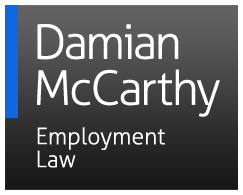Damian´s cases have been reported in national media: newspapers, TV and radio. Here is a selection of reported cases.
"I have worked with Damian now on numerous occasions over more than 10 years and he is at the top of my list when it comes to instructing counsel for employment tribunal work."
Solicitor, Speechly Bircham
More feedback
Moira Stuart
Haley Tansey
Paul McGuigan
Dunstan Pedropillai
Butlins Skyline Ltd and another v. Beynon [2007] ICR 121
"New" ET Rules - what counts as a valid submission of a response and the power of an ET to review an ET decision and/or review a decision of a member of ET staff.
It has been held that the rejection of a response by the Secretary under r 6(1), albeit only an administrative act, is nevertheless a ´decision´ within the meaning of r 34(1)(a), and that, accordingly, where it is alleged that such rejection was erroneous, it is capable of being reviewed under r 34; alternatively, it may be appealed to the EAT under s 21(1) of the ETA.
Sharp v Caledonia Group Services [2006] ICR 218, IRLR 4
An equal pay case won at the Employment Appeal Tribunal (EAT), led by Robin Allen QC. The EAT held that an employer needs to objectively justify a Material Factor Defence. The case was backed by the Equal Opportunities Commission.
The EAT held that there is "no reason whatsoever for not following the Brunnhofer decision which provides clear guidelines in equal pay cases as to the need for objective justification in all cases; insofar as there is a conflict between that decision and earlier UK decisions then we must now follow the European decision."
Grimmer v KLM CityHopper UK [2005] IRLR 596
The Claimant applied to her employers for flexible working for reasons of child care. She submitted a claim to the employment tribunal requesting "flexible working". The employment tribunal refused to admit her claim on the grounds that she had not provided "details of the claim". The EAT held: the employment tribunal had erred. It is a vital principle, that the Rules of Procedure cannot cut down on an employment tribunal´s jurisdiction to entertain a complaint which the primary legislation providing an employment right empowers it to determine and, if there is a conflict, the rules must give way.
Paul v National Probation Service [2004] IRLR 190
An important claim concerning a failure to make reasonable adjustments and justification.
The employment tribunal held that, in a situation where all job applicants were required to have clearance from occupational health before taking up employment, the requirement to this effect was an ´arrangement´ which had to be justified. The EAT disagreed, on the basis that not all disability affects general health. Thus the particular applicant was not placed at a substantial disadvantage in comparison with persons not disabled by reason of the employer's insistence on occupational health clearance. The substantial disadvantage arose not from the existence of the requirement, but rather from the assessment carried out by the occupational health adviser as to the demanding nature of the post to which the claimant had applied. Because the tribunal had incorrectly identified the ´arrangements´ that applied, the finding that there was justification for failure to comply could not stand, and the matter was remitted to tribunal for rehearing.
Sheridan v Stanley Cole (Wainfleet) Ltd [2003] ICR 1449
The Court of Appeal considered human rights and the right to a fair hearing. The decision of tribunal referred to authorities which parties had had no opportunity to address.
The question of proper approach for determining whether hearing rendered unfair in such circumstances.
Post Office v Sanhortha [2000] ICR 866 EAT
Where the relevant factor causing a claimant to believe that he has grounds for making a claim is an alleged fraudulent misrepresentation made to him by his employer, the fact that the circumstances giving rise to this belief were not known during the three-month time limit may render it not reasonably practicable to present the claim in time.

